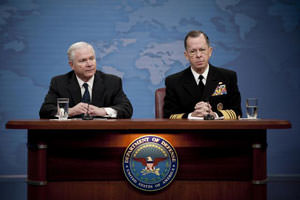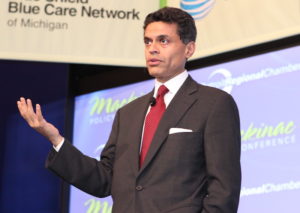Pentagon May Not Wait for Congress on Gays in Military
Only Congress can overturn the military's "don't ask, don't tell" policy, but the military may unilaterally make it harder to enforce -- or at least hold up its end of the deal by actually not asking. The Pentagon will reportedly stop acting on accusations of homosexuality by third-party snitches and gay-baiters and will disempower anyone but generals and admirals to discharge people. Update
Only Congress can overturn the military’s “don’t ask, don’t tell” policy, but the military may unilaterally make it harder to enforce — or at least hold up its end of the deal by actually not asking. The Pentagon will reportedly stop acting on accusations of homosexuality by third-party snitches and gay-baiters and will disempower anyone but generals and admirals to discharge people.
Update: Adm. Mike Mullen, chairman of the Joint Chiefs of Staff, officially came out against the policy, though he said he was only “speaking for myself and myself only.” Defense Secretary Robert Gates announced a review that is expected to take a year. More from the BBC here.
Your support matters…Boston Globe:
Secretary of Defense Robert M. Gates and Admiral Mike Mullen, chairman of the Joint Chiefs of Staff, are expected to announce at least two specific policy shifts: No longer will a “third party,’’ such as a spouse or informant outside the military, be able to prompt investigations of service members by saying they are gay; and only generals and admirals will be authorized to decide whether someone should be discharged for being gay. Such decisions are now often made lower in the chain of command.
By barring third-party testimony from initiating investigations of service members’ sexual orientation, the Pentagon could cut down on the “witch hunts’’ that gay rights advocates say have resulted in the ouster of soldiers who have followed the policy by keeping their private lives private.
Independent journalism is under threat and overshadowed by heavily funded mainstream media.
You can help level the playing field. Become a member.
Your tax-deductible contribution keeps us digging beneath the headlines to give you thought-provoking, investigative reporting and analysis that unearths what's really happening- without compromise.
Give today to support our courageous, independent journalists.






You need to be a supporter to comment.
There are currently no responses to this article.
Be the first to respond.